Lewis and Clark were men on a mission — and not merely in the playful way we use the phrase today when we're heading to the camp store to pick up ingredients for s'mores.
President Thomas Jefferson, who conceived of their expedition across the American West, gave Lewis very clear instructions. In a letter he wrote to Lewis on June 20, 1803, Jefferson explained, "The object of your mission is to explore the Missouri river, & such principal stream of it, as, by it's course & communication with the water of the Pacific ocean may offer the most direct & practicable water communication across this continent, for the purposes of commerce."
OK, that's pretty straightforward. We can imagine Lewis nodding his head as he read this sentence, perhaps even thinking of the exultation he would experience if he did discover the so-called "Northwest Passage" and the pleasure of sharing this news with Jefferson upon returning to Washington.
Maybe he should have stopped reading there. The next sentence of Jefferson's letter reads: "Beginning at the mouth of the Missouri, you will take observations of latitude and longitude at all remarkable points on the river, & especially at the mouths of rivers, at rapids, at islands & other places & objects distinguished by such natural marks & characters of a durable kind, as that they may with certainty be recognized hereafter." Again, it was an understandable expectation, but it would require a lot of time and attention, even while Lewis and his crew would be busy and fatigued with the work of traveling over rugged terrain with all their supplies.
Jefferson went on to explain that the data should be "taken with great pains & accuracy to be entered distinctly, & intelligibly for others as well as yourself, to comprehend all the elements necessary" and, as though he was underestimating the challenges Lewis would be facing in the wilderness, added, "Several copies of these as well as of your other notes, should be made at leisure times, & put into the care of the most trustworthy of your attendants, to guard by multiplying them against the accidental losses to which they will be exposed."
Uh, "leisure times"? Did Jefferson think Lewis would be traveling by Winnebago? that he would be pulling into a Jellystone campground around 5 each afternoon to settle down to a game of Jarts and songs by the campfire?
Unless he was as naive as Jefferson about the dangers and distractions that lay ahead, Lewis must have started to feel some apprehension as he kept reading. In paragraph after paragraph, Jefferson enumerated his objectives for the expedition. They included information about . . .
"the soil & face of the country, it's growth & vegetable productions, especially those not of the U.S."
"the animals of the country generally, & especially those not known in the U.S."
"the mineral productions of every kind; but more particularly metals, limestone, pit coal & saltpetre;"
"salines & mineral waters, noting the temperature of the last & such circumstances as may indicate their character;"
"volcanic appearances;"
"climate as characterized by the thermometer, by the proportion of rainy, cloudy & clear days, by lightening, hail, snow, ice, by the access & recess of frost, by the winds, prevailing at different seasons, the dates at which particular plants put forth or lose their flowers, or leaf, times of appearance of particular birds, reptiles or insects."
Jefferson wasn't done.
Say, Meriwether, while you're at it, also . . .
"endeavor to inform yourself, by inquiry, of the character and extent of the country watered by its branches, & especially on it's Southern side" and
find out "Whether the dividing grounds between the Missouri & them are mountains or flatlands, what are their distance from the Missouri, the character of the intermediate country, & the people inhabiting it, are worthy of particular enquiry" and
"if you can learn anything certain of the most Northern source of the Mississippi, & of it's position relative to the lake of the woods, it will be interesting to us."
Oh, yeah, and don't forget to treat the indigenous people you meet "in the most friendly & conciliatory manner which their own conduct will admit" and . . .
"allay all jealousies as to the object of your journey," and
"satisfy them of it's innocence," and
"make them acquainted with the position, extent, character, peaceable & commercial dispositions of the U.S., of our wish to be neighborly, friendly & useful to them, & of our dispositions to a commercial intercourse with them;" and
"confer with them on the points most convenient as mutual emporiums, & the articles of most desirable interchange for them & us."
As a longtime professor, I have given many assignments to my students. I used to think I was a pretty demanding professor, but I was no Thomas Jefferson. I can only imagine the teaching evals I would have gotten if I had given any assignments with half these requirements. At least, Jefferson didn't insist Lewis document his findings with parenthetical citations conforming to MLA style.
It was a tall order, and Lewis ultimately did a magnificent job, thanks largely to the assistance he wound up receiving from his co-commander, William Clark, who was a cartographer, as well as an implacable outdoorsman.
A Blessing in Disguise
Jefferson's high and seemingly infinite expectations may have been a blessing in disguise. In drawing up all these objectives, he was giving Lewis and his crew something as valuable as the tools and supplies that they would bring with them. In a word, he was providing purpose, which modern experts tell us is an invaluable asset.
More than a century after Lewis and Clark braved the wilderness, an Austrian psychiatrist confronted even greater trials and articulated the value of purpose in memorable fashion. In the 1940s, Viktor Frankl was a prisoner in a Nazi concentration camp, where he and his fellow prisoners needed something to sustain themselves through deprivation, loss, fear, and the threat of despair. "What was really needed,” Frankl later wrote on his book Man's Search for Meaning, “was a fundamental change in our attitude toward life. We had to learn ourselves and, furthermore, we had to teach the despairing men, that it did not really matter what we expected from life, but rather what life expected from us. . . ." Frankl went on to found logotherapy, a theory that the "Search for Meaning" is a central driver for human beings.
Did Lewis and Clark feel this sense of purpose? I think so. Consider these words, penned by Lewis just a few days before the launch of the expedition:
. . . we set forward to that village in order to join my friend companion and fellow labourer Capt. William Clark who had previously arrived at that place with the party destined for the discovery of the interior of the continent of North America.
That long phrase at the end of the sentence — a participial phrase for my fellow grammarians keeping score out there — just oozes purpose: "destined for the discovery of the interior of the continent of North America." The word "destiny" is a weighty word connoting grand purpose, and "discovery" denotes new knowledge, something of great value to a nation and the world. The alliteration of "destiny" and "discovery" brings a little added luster. This was an epic journey rife with mission.
This sense of purpose seems to have sustained Lewis, who could be mercurial at times. On the day that the Corps of Discovery — there's that word again — set out on its second major launch, this time at its departure from its winter quarters at Fort Mandan in modern-day North Dakota, Lewis wrote:
“we were now about to penetrate a country at least two thousand miles in width, on which the foot of civilized man had never trodden; the good or evil it had in store for us was for experiment yet to determine, and these little vessells contained every article by which we were to expect to subsist or defend ourselves . . . entertaing as I do, the most confident hope of succeading in a voyage which had formed a da[r]ling project of mine for the last ten years, I could but esteem this moment of my departure as among the most happy of my life.”
The word "project" — as opposed to say, adventure — suggests a mission, something with an objective and not just an experience, and it's clear that the act of embarking on it was a source of joy for Lewis.
Both Lewis and Clark, furthermore, seem to have kept purpose before them as they "proceeded on" through their journey. As historian Donald Jackson has observed, the co-commanders "wrote constantly and abundantly, afloat or ashore, legibly and illegibly, and always with an urgent sense of purpose." The journals that they and some of their fellow crew members wrote contain some 1 million words. Actually, if you count all the pictures, each of which is worth a thousand words . . . . Well, anyway, you get the idea. These were men on a mission, and that mission, carried out steadily and assiduously, day after day after day, probably helped sustain Lewis and Clark mile after mile after mile.
Purpose: A Key to Survival and Success
You don't have to face life-threatening trials to benefit from a sense of purpose. Researchers studying some 7000 people over the age of 50 found that the ones showing high levels of purpose showed greater survival rates than those who had lower levels. Perhaps purpose really does give us something to live for — and that's a good reason to have and know your purpose.
There are other reasons, though. Award-winning psychologist Angela Duckworth has found that very successful individuals show a combination of "passion and perseverance," or "grit." “What ripens passion,” she says, “is the conviction that your work matters.” For Duckworth, a sense of purpose amounts to “the intention to contribute to the well-being of others.”
That is exactly what Lewis and Clark were pursuing. Jefferson's instructions laid out a long list of objectives, which ultimately could benefit an entire nation, since increased commerce would lead to economic gains for the United States. We should note, however, that there were costs, as well — notably to the indigenous peoples living in the West. To cite just one example of the harm that would come to these peoples, smallpox, which came to the Mandans and Hidatsas in 1837, killed some 90 percent of these populations.
Not all of what Lewis and Clark did benefited only one nation, though. Their scientific work expanded understanding of botany, zoology, and more, ultimately benefitting all of humanity. Collecting specimens, recording details of the land, and charting the territory meant a lot of extra work for Lewis and Clark, but this work, because it entailed a sense of purpose, may have helped preserve them through all of the trials they faced.
What's Your Mission?
Let's return to those powerful words from Viktor Frankl: ". . . it did not really matter what we expected from life, but rather what life expected from us. . . ."
What does life expect from you? The answer won't be the same for all of us. If you are a scientist, you may share Lewis and Clark's mission of expanding knowledge, which in turn frequently leads to technological innovations, medical treatments, productive public policies, and more. As a researcher myself, I seek to expand knowledge in general, but I also strive to expand the knowledge of individual human beings through my lecturing and writing. I believe that knowledge empowers individuals, and my mission is, to paraphrase the tagline of my Mind Inclined learning platform, to help my fellow human beings elevate their minds, their lives, and their world.
I encourage you to do some reflection and identify your own mission and, in so doing, cultivate a strong sense of purpose. It might be healing through medicine or therapy, preserving the environment, enriching others' lives through the arts, or protecting and serving through law enforcement. Remember, too, that you can pursue more than one mission. All of us who are parents should have a mission of nurturing our children to become their best selves. That's certainly been a mission that my wife and I have pursued.
You don't need an itemized directive from the president to discover your mission. To serve your world and yourself, simply ask, as Viktor Frankl suggested, what life expects from you.

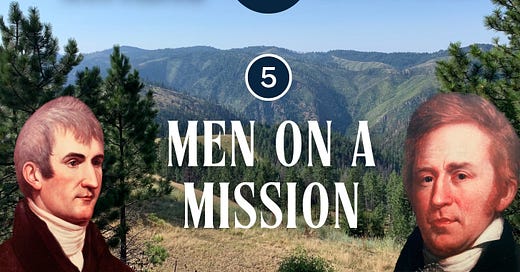



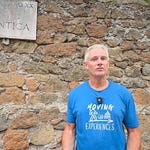

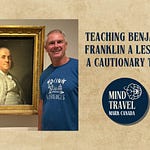


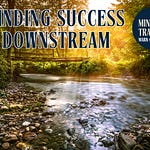
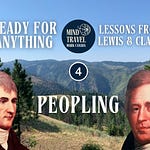
Share this post